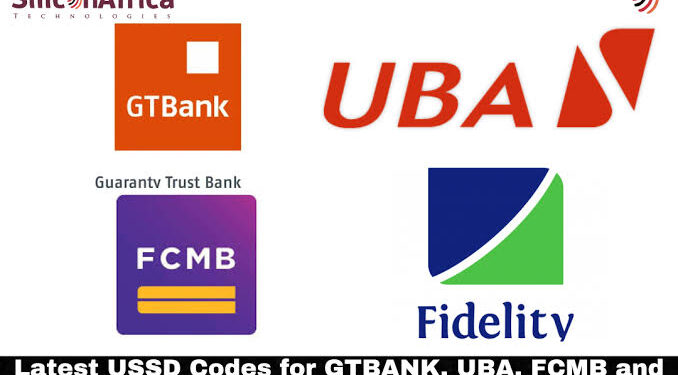*Stock Market Takes Heat
The Central Bank of Nigeria’s directive on forbearance restricting banks under regulatory oversight from declaring dividends, bonuses, and foreign investments has the potential of enhancing financial stability as well as improvement in risk management, analysts say.
Although they observed that the stock market could be negatively affected through decreased investor confidence, ocassioned by dividend payment restriction as well as market value of banks, potentially resulting in a sell-off of banking stock , they concluded that financial institutions may be better positioned for long-term sustainability and growth.
For instance, the stock market opened the week on a negative note on Monday, with key performance indicators dropping by 0.15 per cent,with the banking secror losing about 2.9 percent
Also, the market capitalisation dropped by N108 billion, or 0.15 per cent, closing at N72.680 trillion, down from N72.788 trillion recorded on Friday.
Similarly, the All-Share Index shed 170.77 points or 0.15 per cent, closing at 115,258.77 from the previous close of 115,429.54.
The downward trend was driven by profit-taking among investors.
Similarly, the market breadth closed negative with 43 losers and 21 gainers, developments, analysts attribute to the new CBN policy.
While the development has put some shareholders on the edge, a new report from Renaissance Capital has identified the banks facing dividend suspension till 2028, others, possibly till 2026
Consequently, the analysts said shareholders of the banks will have limited options, which could lead to decreased investor confidence, as the options would be to hold or sell.
Indeed, the new research note revealed that several of Nigeria’s most prominent banks are facing significant exposure to regulatory forbearance loans, since 2020.
Damilare Asimiyu, Macroeconomic strategist, Afrinvest Consulting said it is the overall positive effects that should be of.most important to the economy, stressing that CBN’s directive is not new.
In his response to metrobusinessnews.com (MBN), Damilare said:, “I don’t see the directive having any negative impact on the banking industry. This announcement is just to reinforce the mechanism that is already on the ground. Since 2018, the CBN has created evaluation metrics to assess banks that can pay dividends and what percentage of their profit they can pay (we have severally highlighted this in our annual banking sector reports). If you look at the recent divided payment patterns of the banks in FY 2024 and H1 2025, you would already have a sense of those under close regulatory scrutiny – either they did not pay or paid lower than peers.
The recent re-enforcement of the policy is the best for the industry and is a move that is globally acceptable to keep the financial sector viable in the face of evolving domestic and global risk factors. Nigeria can’t afford financial sector distress in the present period.
Overall, I see a more resilient banking industry going forward, maintaining its leadership position as the fastest growing sector in Nigeria over the last five years on average.”
Chuka Mordi, an analyst and a director of CBO Capital, a leading private equity and investment management group based in Lagos, Nigeria, said, the desired results will be achieved if directives.are properly enforced.
“These are not overly onerous prudential guidelines. If properly enforced, they will compel banks to ensure proper capital adequacy, improve good corporate governance, and the overall impact will be beneficial for the sector. As long as these are the intended objectives of the CBN, the directives should be applauded.”
However, another analyst, who pleaded for anonymity said: “CBN’s directive on forbearance has both positive and negative implications for the banking sector and the broader economy. While it may lead to decreased investor confidence and reduced market value in the short term, it can also contribute to enhanced financial stability and improved risk management practices in the long term. However, the lack of dividend payments could impact the market value of banks, making it challenging for them to raise capital.”
Some banks that may be affected by the directive include, Zenith Bank, With an estimated $1.6 billion in forbearance exposure, Zenith Bank’s capital adequacy ratio may decline by 128 basis points; FirstBank, with an estimated $887 million in forbearance exposure, the bank’capital adequacy ratio may be impacted.
Access Bank, with an estimated $304 million in forbearance exposure, Access Bank’s dividend payment may be suspended.
Fidelity Bank with an estimated $296 million in forbearance exposure, hence the bank’s capital adequacy ratio may decline by 394 basis points, while, FCMB with an estimated $134 million in forbearance exposure, the bank’s non-performing loan ratio may rise to 7.2%.
The RENCAP report titled “Nigerian Banks, Cash Is King” suggests some are now likely to suspend dividend payments for multiple years as they work to meet stricter prudential standards imposed by CBN.
The notice follows a June 13 directive from the CBN, instructing banks with unresolved forbearance exposures to halt dividend payments, defer executive bonuses, and suspend all new investments in offshore subsidiaries.
The aim, according to CBN, is to strengthen capital buffers and ensure adequate provisioning against impaired loans, especially those that risk breaching the regulatory Single Obligor Limit (SOL).
The suspension is expected to remain in place until affected banks have fully provisioned for their forbearance exposures and phased them out .
For several banks under coverage, analysts at Renaissance Capital expect both interim and final dividends to be paused indefinitely.
The RENCAP report observed that some of the banks may have made some progress since banks as the analysis was based on data from the first half of 2024, which may not account for the significant progress by these institutions in addressing these exposures, hence the need for the latest update.
READ ALSO:Israel-Iran Conflict May Trigger FDI Decline In Nigeeia, Ghana- Report
Specifically, and based on the report RENCAP estimates that Zenith Bank, FirstBank, and Access Bank rank highest in terms of forbearance exposure.
The research notes that Zenith Bank carries forbearance loans equivalent to 23% of its gross loan book, FirstBank has an exposure of 14%, and Access Bank stands at 4%.
Tier-II lenders are also affected, with Fidelity Bank and FCMB carrying exposures of 10% and 8% respectively.
In contrast, GTCO and Stanbic IBTC have zero exposure to forbearance loans, having already cleaned up their books.
GTCO, in particular, had proactively provisioned for and written off these exposures as of December 2024.
According to the report, estimates for GTCO, UBA, Fidelity, and FCMB were based on recent management engagements, while the estimate for Zenith Bank was drawn from a December 2024 interaction.
Other notable exposures include Fidelity Bank at $296 million, UBA at $282 million, and FCMB at $134 million.
However, betond the scale of these exposures, the Rencap also flags concerns over potential regulatory breaches.
Specifically, FirstBank, Fidelity Bank, and Zenith Bank are believed to be at risk of breaching the CBN’s Single Obligor Limit, a threshold designed to prevent over-concentration of credit risk in a single borrower or sector.
While not all forbearance loans are tied to a single client, the exposures are believed to be heavily concentrated in Nigeria’s oil and gas sector, particularly in upstream operations and refinery projects.
FCMB was noted as compliant, with its largest forbearance exposure to a single counterparty standing at $68.1 million, well below its regulatory ceiling of $94 million.
The report also stated that cash profits are now a more meaningful indicator of bank performance than reported earnings, given the distortions caused by Nigeria’s financial reporting standards











